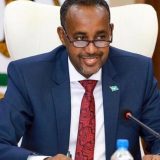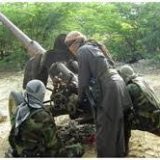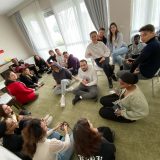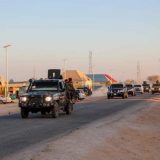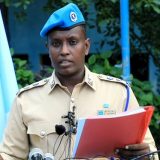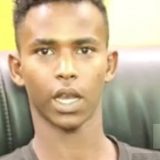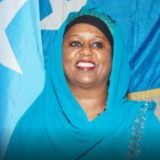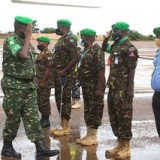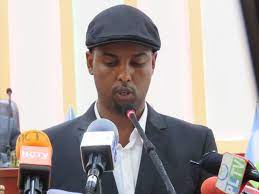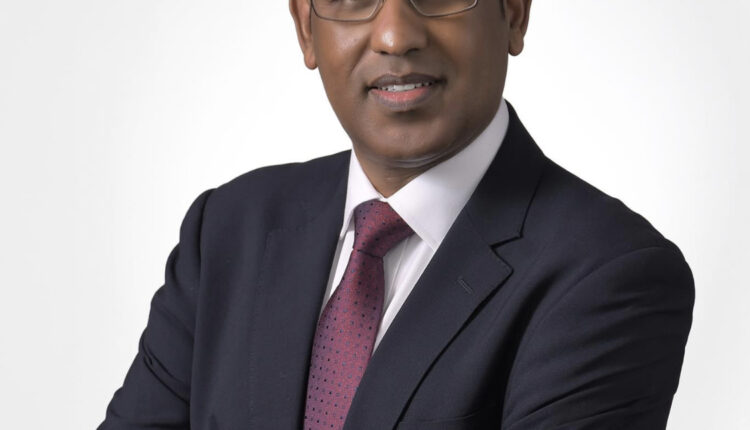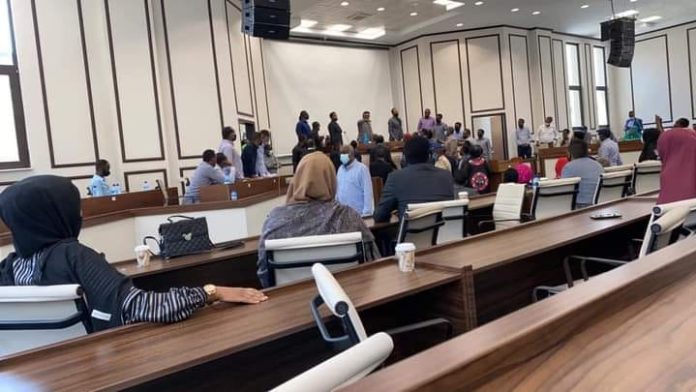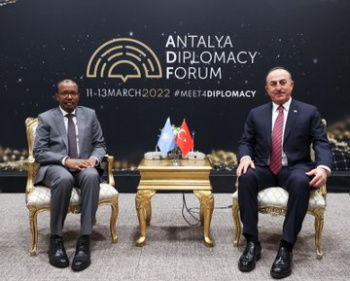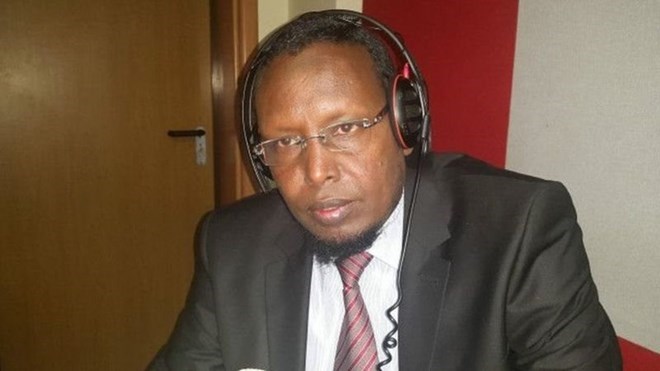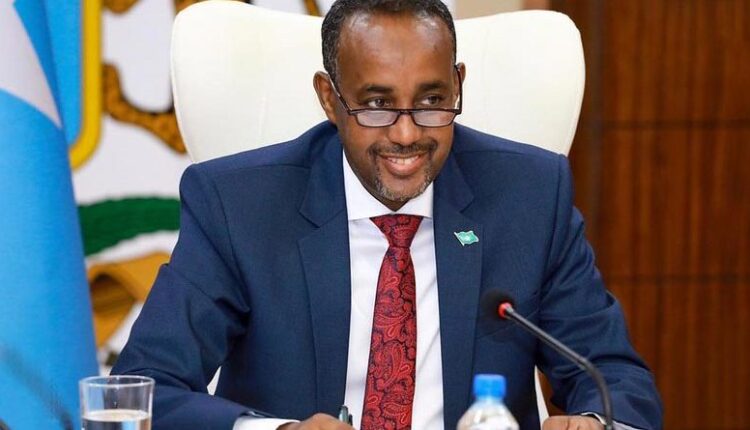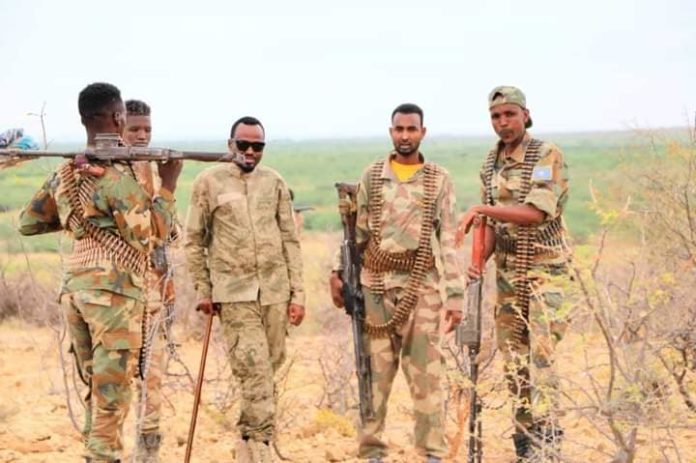Indianapolis man lived refugee story: ‘These people … they are running for their lives’
Idystar
Wednesday June 20, 2018
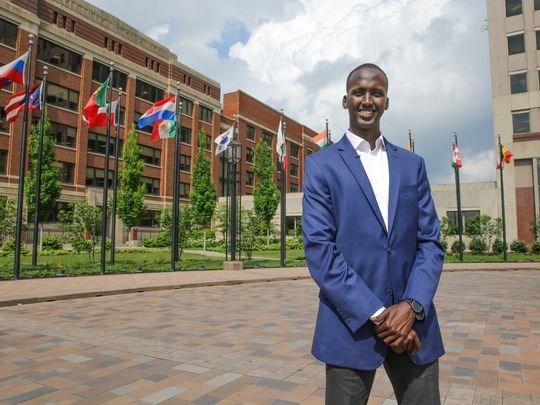
Mohamed Osman Mohamed, 26, looks successful and self-assured. The 6-foot-6 Indiana University graduate works for Eli Lilly and Co. in Indianapolis, but his heart is thousands of miles away — in a refugee camp in Kenya.
That’s where much of his family is. His little brother, his aunt, cousins and friends. Mohamed is one of the lucky ones, escaping the camp and coming to the U.S. legally with help from Exodus Refugee Immigration in Indianapolis. He arrived in Indiana in December 2010, shivering under three jackets, yet exhilarated at the opportunity before him.
“I love this state and I love the people,” he said. “I’m very happy to be working here.”
Now a U.S. citizen, Mohamed counts his blessings every day but also wants to bring attention to citizens of the world who are suffering because of violence, disease, hunger and despair, especially today (June 20), World Refugee Day.
“It’s a day people honor the courage of refugees, people who have fled, people still in camps, people dying at sea,” he said. “I want people to think of themselves being in that position.”
Mohamed fled his war-torn home in Somalia as a teenager and found relative safety, if not peace, in what was then the largest refugee camp in the world. At its height, Dadaab was home to 500,000 refugees, most of them Somalis who began fleeing their country’s civil war in 1991.
The United Nation’s refugee agency estimates there are 65 million refugees in the world today, split among informal settlements and more formal camps. More than half of them are children.
“Like every refugee person in the world, I left (Somalia) not by choice, but by force,” he said. “We were forced to leave everything behind to seek a better life.”
His mother died in Somalia after giving birth to Mohamed’s brother; his father was killed in the country’s civil war when Mohamed was 13.
Today, Mohamed is fluent in English, lives on the south side of Indianapolis and works in Lilly’s investor relations and corporate social responsibility office. He feels some guilt about his good fortune, though it hasn’t come without cost. He sends money back to his family for his cousins’ education, mentors a young Congolese boy here and volunteers with Exodus to help others find their way to a better future.
The same young boy who used to roll up a book and pretend to be a radio reporter in Somalia now listens to the BBC for news of his homeland and of the camp in Kenya where so many live a squalid existence.
“My dream is just to make a difference in others’ lives,” he said. “Anything I can do to help people that are in the position that I was seven years ago — I know how hopeless that was.”
Cole Varga, executive director of Exodus, said Mohamed has been gracious about volunteering his time. When he spoke at the group’s fundraising gala last summer, Varga said he commanded the room with his story.
“He’s so articulate, so genuine, and he is able to communicate so well.”
Mohamed understands the conflict that the refugee crisis creates among citizens of the United States and other countries around the globe. He doesn’t expect the U.S. to solve all of the world’s problems, but he has a word of advice and a request.
“When you see people fleeing, crossing international borders, don’t look at them as a problem,” he said. “The problem is not the people, the problem is what is causing people to flee.
“I want people to look beyond politics,” he added, “to look beyond opinions that are not based in reality, to look at real people and real problems and to ask their government to do everything they can to address the root cause of the problem.”
To start that process, he invites everyone to find a refugee and listen to their story. After hearing it, he says, “Ask yourself what would you do if you were in that position, what would you do if you had to escape, if you had to save your kids? Would you stay or run away? That is what these people are doing; they are running for their lives.”
Mohamed will participate in a benefit for Exodus on Saturday at the Cottage Home Neighborhood Community Space, 714 N. Highland Ave. The family-friendly event from 4 to 11 p.m. will include an “Ask a Refugee” booth, a “What Would You Take?” activity and information on supporting refugees locally and globally.
“People can help in different ways,” he said. “Helping one person creates a ripple effect. I feel guilty that I am the only one of my family who has the choice to do things — to go to college, to look for a job and to earn my own income.”
But he tries to keep the dream alive for his family, especially his 17-year-old brother, who has polio.
“I tell him to stay alive and keep your hopes alive. That camp is not your destiny.”
In 2016, 85,000 refugees from around the world were admitted to the United States, up from about 70,000 in 2015. The top countries of origin were the Democratic Republic of the Congo, Syria, Burma, Iraq and Somalia. The Trump administration capped refugee numbers at 50,000 in 2017 and 45,000 this year.

